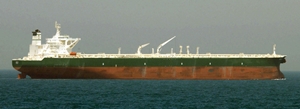Russia, Saudi agree to oil output freeze
16 Feb 2016
Top oil producers Russia and Saudi Arabia today agreed to freeze output at January levels in a bid to arrest sagging markets, but said a deal was contingent on other producers, most importantly Iran, also joining a coordinated production cut.
The shock Russia-Saudi oil deal to freeze output, however, sent shock-waves through the market, pushing North Sea Brent prices down and stalling a rally in the Financial Times Stock Exchange (FTSE) 100 stock index.
Oil ministers of Russia, Saudi Arabia, Qatar and Venezuela announced the proposal after they met for an unscheduled meeting in the Qatari capital Doha - their highest-level discussion in months -- on joint action to tackle a growing oversupply of crude and help prices recover from their lowest levels in more than a decade.
Freezing output at January levels will not reduce output, rather it will check oil production from rising further from its peak levels. At current levels of supply, the market will not also be hit if production does not increase.
Saudi oil minister Ali al-Naimisaid said freezing production at January levels - near record highs - was an adequate measure and he hoped other producers would adopt the plan.
Venezuela's oil minister Eulogio Del Pino said more talks would take place with Iran and Iraq on Wednesday in Tehran.
"The reason we agreed to a potential freeze of production is simple: it is the beginning of a process which we will assess in the next few months and decide if we need other steps to stabilize and improve the market," Naimi said.
"We don't want significant gyrations in prices, we don't want reduction in supply, we want to meet demand, we want a stable oil price. We have to take a step at a time," he said.
Crude prices, which shot up to levels around $35.55 per barrel following news of the hush-hush producer meeting, however, pared some of the gains and was trading below $34 as expectations of an immediate deal faded.
Iran, Saudi Arabia's arch rival, fresh out of international sanctions, has pledged to steeply increase oil output in the coming months as it looks to regain market share lost after years.
An output freeze by top producers Saudi Arabia and Russia at near record highs also does not make much sense since Iran is currently producing at least 1 million barrels per day below its capacity and pre-sanctions levels.
"We think other producers need to freeze straight away, including Iran and Iraq. We believe this step is meant to stabilise the market," said Qatar's oil minister Mohammed al-Sada.
Iraq also has long said it expected its production to rise further this year but last month it said it was ready to reduce its fast-growing output if all Opec and non-Opec members agreed.
The Doha meeting comes more than 18 months after oil prices started declining from their $115 a barrel highs in mid-2014 to a decade low below $30 a barrel.
The slump in oil prices has more to do with booming US shale oil output and a decision by Saudi Arabia and its Opec allies to raise production to fight for market share and drive higher-cost production out of the market.


















